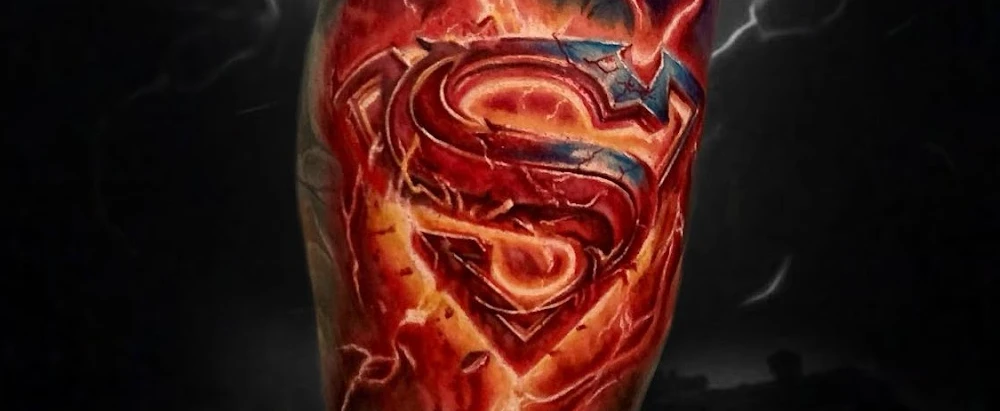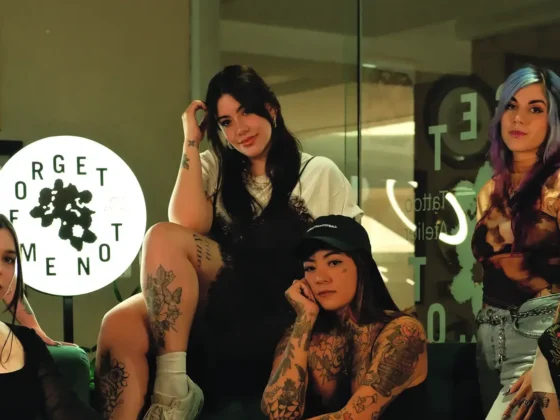Inked Mag Staff
April 15th, 2020
The Politics of Pot
Legalization is only the first step toward repairing the damage caused by the War on Drugs.
Words by Joe Neighbor | Art by AJ France
Cannabis advocates are anticipating a banner year. In the coming months, the legislatures of New York and New Mexico, among others, will debate joining the 11 states where recreational marijuana is already legal. A further 15 states could have either retail or medicinal measures on the ballot this fall.
“Even at this early stage in the game, it seems clear to us that 2020 is going to be one of the most productive and exciting years in the marijuana legalization movement, probably in history,” says Erik Altieri, executive director of the National Organization for the Reform of Marijuana Laws (NORML). “The map in the beginning of 2021, when it comes to state marijuana laws, is going to look fundamentally different than it does now, and a hell of a lot greener.”
Politicians, forever with a finger in the wind, are reflecting the widespread public support for legal cannabis. Recent Pew and Gallup polls show two-thirds of Americans support legalization, including majorities of Republicans and Independents. This approval is more or less evenly spread across the map, too, and is shared by all ages born after the Silent Generation.
It’s not simply tax revenue that excites those following this issue closely. The way we talk about cannabis has changed. Social justice and equity have emerged as critical components of any meaningful legalization effort, as advocates seek to not only end prohibition but also address the baneful legacy of the drug war.
States and cities are trying to reconcile the grotesque irony of citizens sitting in jail for past cannabis convictions, while a white-hot legal marijuana market makes a lot of money for Wall Street financiers and Silicon Valley ganjapreneurs. To many activists and lawmakers, it’s clear that not enough of this bounty is reaching the communities that bore the brunt of the War on Drugs. And even states that have made diversity of opportunity a priority, like Maryland and Massachusetts, have found it difficult to get licenses to grow, distribute or sell into the hands of minority entrepreneurs. These issues of fairness, long discounted or ignored, are finally getting their due.
“The people who are driving the conversation around the need for equity and community reinvestment are the people who have been most impacted by prohibition,” says Melissa Moore, New York Deputy State Director of the Drug Policy Alliance. “They felt the targets on their backs for decades. It’s not enough to say ‘our bad, we won’t do that anymore.’ There’s a legacy of harm that needs to be addressed in a serious way.”
On January 1, Illinois became the 11th state to legalize retail marijuana sales, and the first to do so through the state legislature. In some ways, the shortcomings of previous legalization efforts can be traced to the ballot initiative process, which often places restrictions on language and subject matter, resulting in a narrow, yes-or-no vote for the public.
By comparison, the Illinois Cannabis Regulation and Tax Act is nearly 600 pages long. It establishes a legal retail market, while including provisions long championed by social justice activists. Nearly 800,000 non-violent marijuana convictions will be expunged. A business development fund will provide low-interest loans, grants and technical assistance to help minority entrepreneurs get started. An additional 25 percent of the tax revenue raised by cannabis sales is earmarked for the Restore, Reinvest and Renew Program, a suite of public health and violence-prevention services that will target communities ravaged by the drug war.
It remains to be seen how all this will play out. Hiccups are to be expected when getting such an extensive program off the ground. But for the moment, this bill is the best model for thoughtful, just legalization we’ve seen yet. Lawmakers in New York are certainly taking notes.
Governor Andrew Cuomo has made legal pot a priority this year. “For decades, communities of color were disproportionately affected by the unequal enforcement of marijuana laws,” he said in January, during his 2020 State of the State address. “Last year we righted that injustice when we decriminalized possession. This year let’s work with our neighbors New Jersey, Connecticut and Pennsylvania to coordinate a safe and fair system, and let’s legalize adult use of marijuana.”
Cuomo nearly got it across the line last year, but the Marijuana Regulation and Taxation Act (MRTA) was defeated in Albany by Democratic legislators who demanded community reinvestment provisions. It’s widely expected that they’ll get it right this time. And the election calendar—primary voting, the most important stage of the cycle in New York, will take place on April 28—means debate will be pushed to the beginning of the legislative session, allowing candidates to get back to the districts quickly. If it happens, it’s going to happen soon.

Legalization in wealthy, populous New York would have massive consequences. The unique geography of the Tri-State area, in which millions cross state borders each day for work or play, means legal weed in one place affects the rest. With this reality in mind, Cuomo hosted a cannabis summit last October, inviting governors from neighboring states—including Gov. Phil Murphy of New Jersey, where legalization was defeated in the legislature for similar reasons as New York—to hash out how a legal marijuana market might work.
“In the absence of movement at the federal level, I think a lot of people across the country are looking for leadership in this arena,” Moore says. “It’s a huge opportunity for the governor and legislature to provide a national model for what legalization could look like, in a way that centers equity and smaller businesses, smaller farmers and community reinvestment—really taking into account the lessons learned by other states and hitting the mark.”
Along with a bevy of state bills and ballot measures coming in 2020, the federal government has also shown signs of life on this issue. The Marijuana Opportunity Reinvestment and Expungement Act (MORE Act), introduced last July by Rep. Jerry Nadler, includes many of the social equity provisions featured in the Illinois bill, while also bringing to bear the full might of the federal government. In November, it was reported out of Nadler’s Judiciary Committee, becoming the first marijuana legalization bill to ever be approved by—or even be debated by—a congressional committee. It still faces hearings in several committees, then a full House vote, before consideration by Mitch McConnell’s Senate, but it’s an admirably comprehensive bill that, if enacted, would be a gamechanger.
A Democrat in the White House would certainly aid the cause. This, too, illustrates how far the issue has come in so short a time. In previous presidential cycles, no viable Democratic candidate supported marijuana legalization. In 2016, only Bernie Sanders did so. Now nearly every Democratic candidate for president—except, notably, Joe Biden and Mike Bloomberg—supports ending federal prohibition and implementing programs to right the wrongs wrought by the War on Drugs.
“It’s hard to look at the failures of the drug war, our broken criminal justice system, or mass incarceration and not see what an outsized role marijuana prohibition plays in that,” NORML’s Altieri says. “It’s both surprising and vindicating to see how quickly people who are running for the highest office in the country have begun to talk about this in a very nuanced, interesting way that addresses not just legalization, but equity programs, expungement and all the things that go along with it.”
The legal weed movement has wind in its sails, no doubt. This momentum allows us to finally move past the question of if, on to the question of how. By expunging past convictions and allowing those most harmed by prohibition to share in the immense wealth created by cannabis, states are showing how we can make this country richer, fairer and a hell of a lot greener.
Editor's Picks
Bridging Classical Art and Modern Tattooing
Esteban Rodriguez brings the discipline of classical fine art to the living canvas of skin, creating hyper-realistic tattoos that merge technical mastery with emotional depth.
Show Your Ink Fashions Brings Custom Style to Tattoo Culture
Show Your Ink Fashions creates custom shirts designed to showcase your tattoos as wearable art, blending fashion with personal expression.
The Ultimate “Superman” Tattoo Roundup: Just in Time for Superman’s Return to Screens
With Superman’s big return to theaters, fans are revisiting some of the most iconic ink inspired by the Man of Steel.














